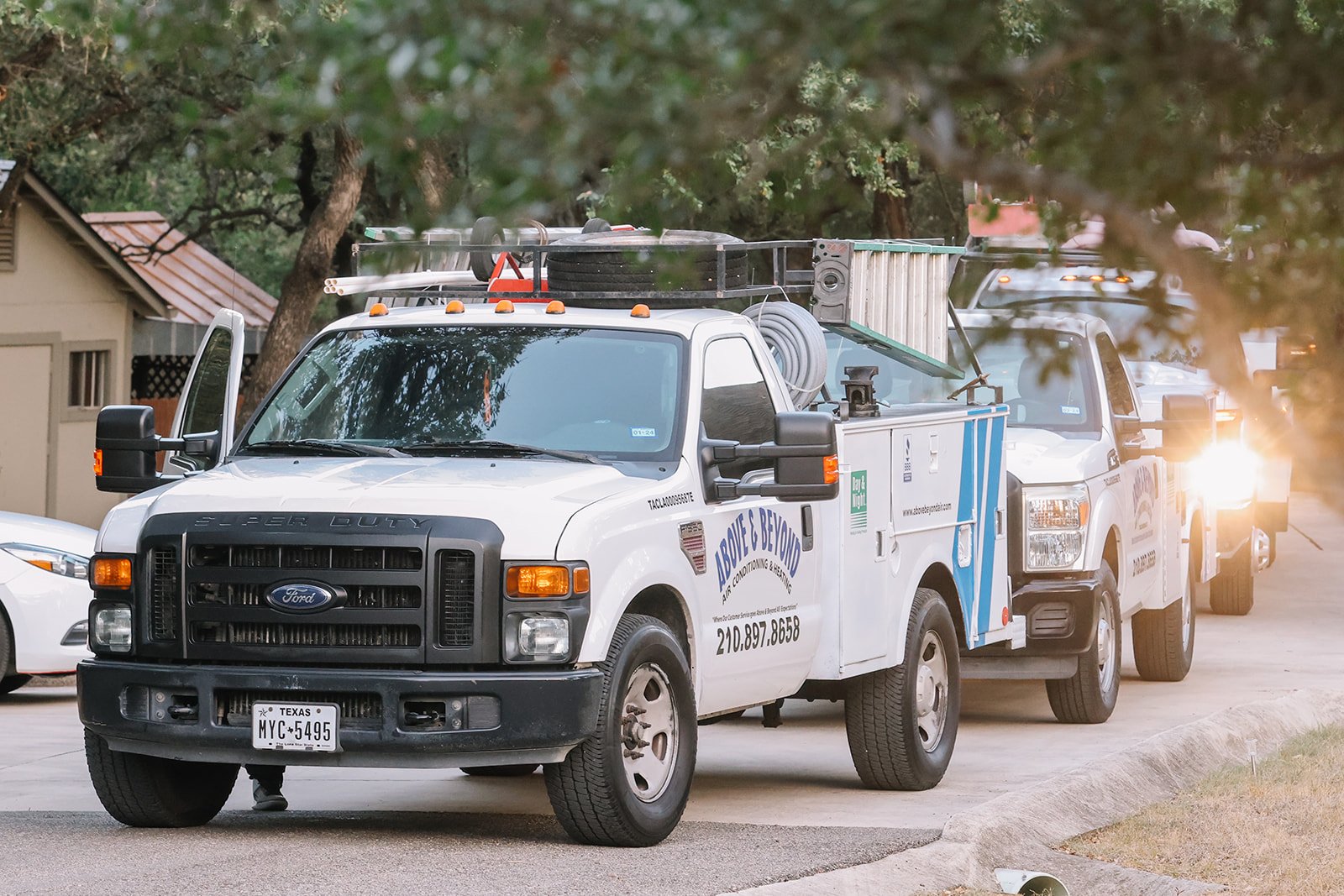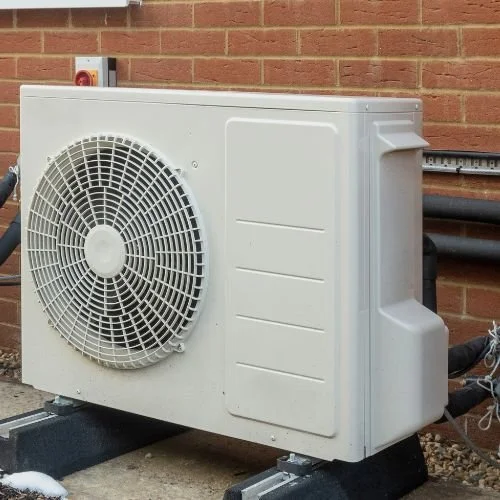
Rheem Heat Pump Repair in San Antonio
We serve San Antonio, Helotes, Bulverde, Canyon Lake, New Braunfels, Schertz, and Cibolo
Rheem heat pumps offer efficient heating and cooling solutions for San Antonio homes, but like all mechanical systems, they may require repairs over time. Common issues include reduced heating or cooling output, strange noises, or complete system failure. Addressing these problems promptly can prevent more extensive damage and maintain optimal home comfort. Professional technicians have the expertise to diagnose and repair Rheem heat pump issues effectively, utilizing specialized tools and knowledge of the brand's specific components.
Routine maintenance plays an important role in preventing many heat pump problems. However, when repairs become necessary, homeowners should seek qualified professionals familiar with Rheem systems. Expert technicians can accurately identify the root cause of malfunctions, whether stemming from electrical components, refrigerant leaks, or mechanical wear. They can then implement appropriate repairs using genuine Rheem parts to restore the system's performance and efficiency. Prompt attention to repair needs not only resolves immediate comfort issues but also helps extend the lifespan of the heat pump.
For San Antonio residents, finding a reputable repair service specializing in Rheem heat pumps is essential. Local companies with experience in Rheem systems can provide faster, more accurate diagnoses and repairs. These professionals understand the special challenges posed by the San Antonio climate and how it affects heat pump operation. By choosing a trusted local service, homeowners can benefit from quick response times, knowledgeable technicians, and ongoing support for their Rheem heat pump systems. Proper repairs and maintenance keep these systems running efficiently, contributing to lower energy bills and improved indoor comfort throughout the year.
Signs You Need Heat Pump Repair
Strange Noises: Unusual sounds emanating from a heat pump often indicate underlying issues requiring attention. Grinding, squealing, or rattling noises may suggest problems with the compressor, fan motor, or loose components. Buzzing sounds could point to electrical malfunctions while hissing might indicate refrigerant leaks. Clicking noises during operation, beyond the normal startup sounds, may signal faulty relays or contactors. Prompt investigation of these auditory cues can prevent minor issues from escalating into major breakdowns, preserving the system's efficiency and longevity.
Frequent Cycling: Heat pumps experiencing short cycling, where the system turns on and off rapidly, signal potential problems. This behavior can stem from various issues, including faulty thermostats, refrigerant leaks, or oversized units. Frequent cycling puts unnecessary strain on components, leading to inflated wear and tear, reduced efficiency, and higher energy consumption. Addressing this issue can prevent premature system failure and maintain optimal comfort levels. Professional diagnosis is crucial to pinpoint the exact cause and implement appropriate repairs.
Increased Energy Bills: A sudden spike in energy costs without corresponding changes in usage patterns often indicates heat pump inefficiency. Aging systems, refrigerant leaks, or malfunctioning components can cause the unit to work harder, consuming more electricity. Clogged filters, dirty coils, or icing issues may also contribute to decreased performance and higher bills. Routine maintenance can stop many of these issues, but when energy costs rise unexpectedly, it's time to consider professional inspection and repair to restore the system's efficiency and reduce operating costs.
Poor Airflow: Diminished airflow from vents suggests potential heat pump problems requiring attention. Causes may include blocked or leaky ductwork, failing blower motors, or clogged air filters. Reduced airflow leads to uneven heating or cooling, decreased comfort, and strain on the system. In some cases, frozen evaporator coils can restrict air movement, indicating refrigerant issues or malfunctioning defrost cycles. Addressing airflow problems can prevent further damage to the heat pump and maintain consistent indoor comfort levels throughout the home.
Our Reviews
The Rheem Heat Pump Repair Process
Initial Inspection: The repair process starts with a thorough visual examination of the Rheem heat pump system. Technicians check for obvious signs of wear, damage, or malfunction in accessible components. This initial assessment includes examining the outdoor unit, indoor air handler, and visible ductwork. Technicians also review the system's maintenance history and discuss any observed issues with the homeowner. This preliminary inspection helps identify potential problem areas and guides the subsequent detailed diagnostic process.
Detailed Assessment: Following the initial inspection, technicians conduct comprehensive diagnostic tests on the Rheem heat pump. This involves checking refrigerant levels, testing electrical components, and evaluating the performance of major system parts like the compressor and fan motors. Advanced tools such as multimeters, pressure gauges, and thermal imaging cameras may be employed to gather precise data. This thorough assessment allows technicians to pinpoint the root cause of the problem, whether it's a minor component failure or a more complex system issue.
Repair Execution: Once the issue is identified, technicians proceed with the necessary repairs. This may involve replacing faulty parts, recharging refrigerant, cleaning components, or adjusting system settings. For Rheem heat pumps, technicians use brand-specific knowledge and genuine replacement parts to maintain system integrity. The repair process adheres to manufacturer guidelines and industry best practices to restore optimal functionality. Technicians also address any additional maintenance needs discovered during the assessment to prevent future issues.
System Testing: After completing repairs, thorough testing is conducted to verify the effectiveness of the work. Technicians run the Rheem heat pump through various operational modes, checking for proper cycling, temperature output, and overall performance. Airflow is measured to confirm adequate circulation, and energy consumption is monitored to verify efficiency improvements. This testing phase helps identify any lingering issues or necessary adjustments, allowing immediate correction before concluding the repair process.
Final Inspection: The repair process concludes with a comprehensive final inspection of the Rheem heat pump. Technicians review all repaired or replaced components, double-check connections, and confirm proper system operation. They also inspect the area around the unit for any signs of leaks or unusual wear. The homeowner is briefed on the completed repairs, any recommendations for future maintenance, and tips for optimal system operation. This final step aims to provide peace of mind and confirm that the heat pump is functioning safely and efficiently.



